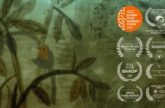Captions provided by CCTubes – Captioning the Internet!
In an age of mass consumption and instant gratification, the want to satisfy our every gastric desire often leaves us all oblivious to the truth surrounding the foods we eat. You might, in reality, just find yourself chewing on a mouthful of lies. Here are 12 things you eat that are a lie.
Subscribe for more! ► http://bit.ly/BeAmazedSubscribe ◄
Stay updated ► http://bit.ly/BeAmazedFacebook https://twitter.com/BeAmazedVideos https://instagram.com/BeAmazedVideos◄
For copyright queries or general inquiries please get in touch: beamazedvideos@gmail.com
Credits: http://pastebin.com/7yPgUBaM
Are there videos you would love to see captioned like this one? CCTubes makes it simple and inexpensive to get any videos you want to see with captions done. Come and see how easy it is to submit videos you want captions for. Become a member now and help us caption the internet!
American Cheese – The bright orange cheese slices made popular by Kraft Foods, usually found inside the Cinderella of American cooking: the cheese burger; are a staple in the corpus of the U.S culinary delight known as fast food. Margarine – For decades, margarine was marketed as the healthy alternative to the seemingly life-destroying devil… butter. This, however, couldn’t be further from the truth. Margarine can, in fact, be quite harmful to the health of its consumers. Chicken Tikka Masala – Most would consider this popular dish a firm pillar of Indian cuisine, or so it’s made to seem by the restaurant and takeout menus. In reality, though, this pillar doesn’t stand quite as firmly as we may think as the dish has a rather murky history. Chicken Tikka Masala is actually said to originate from Glasgow, Scotland. That’s right, it’s a British dish, for now anyways, so long as Scotland decide to remain a part of Great Britain. Pringles – Potato chips stacked in a tube. Well, kind of. The former parent company of this popular brand claimed that the snack can’t and shouldn’t be considered as potato chips at all. They argued that the potato content of the chips in question reach only a meagre 42%. Naked smoothies – PepsiCo advertise this brand of smoothie as containing no added sugar, helping the drink keep up its façade as a health product. The reality is, however, that these smoothies are no better for your body than the most sugary of drinks. Crispy Seaweed – Certain types of seaweed are used as culinary ingredients in many coastal regions around the globe, but perhaps it’s most commonly thought of in reference to forms of Asian cuisine. Crispy seaweed, in particular, is largely attributed to Chinese cooking. Red Snapper – An Oceana org investigation, conducted in 2013, discovered that there’s a US nationwide problem with fraudulent seafood. The study shows that the popular Red Snapper fish is the most mislabelled and miss-sold fish food product throughout the united states. Oceana reported that Red Snapper are often substituted by 28 entirely different species of fish, and this happens in 93% of purchases. Meaning that there’s a very high probability of the Red Snapper you’re eating being a complete and utter fake! Rocky Mountain Oysters – A dish unbeknownst to many who aren’t accustomed to the moo-ey reaches of good ole ranch life; commonly found in regions of the U.S.A’s Great Plains, in steak houses, and in delicatessen joints around the world. One may be coaxed by the name into thinking that this dish is made up entirely of oysters gathered from the Rocky Mountain territory. Aquafina – Another PepsiCo drink, another PepsiCo fib. The label on this brand of bottled water reads across it: “pure water”. But, according to PepsiCo, the water contained within the confines of the bottle actually comes from a Public water source. Pumpkin Spice – There’s a delightful variety of spices that, when mixed together, makeup the seasonally popular pumpkin spice flavour. The commercial stuff we find laden over seemingly anything and everything throughout autumn and winter -a time abundant of pumpkin spice flavoured products – is, disappointingly, more than likely to fall short of using any real spices. Nuts – Peanuts, walnuts, pecans, and almonds are referred to as nuts only in the culinary sense. In reality, they aren’t nuts at all. Peanuts are in fact Legumes, they are dry edible seeds contained in multiplicity within pods that start to split when they’re ripe, making them closer to peas and beans than to actual nuts. Bananas – The bananas we find on the supermarket shelves and in our homes are the wonderfully edible results of thousands of years of genetic modification, meaning that they aren’t exactlyas natural as we believe them to be.














